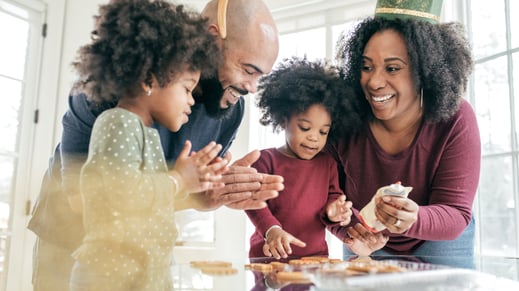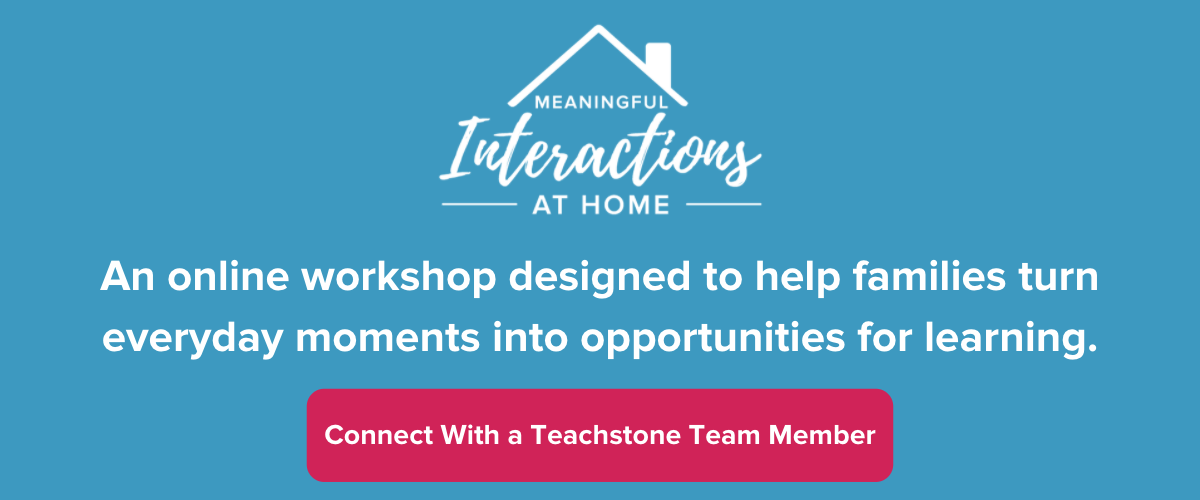
We all want what’s best for our children. There are hundreds of aspects to measure: nutrition, exercise, curriculum, community involvement, and much more.
There’s one aspect that you may not know is measurable—that’s the interactions between educators and students. This is where the CLASS tool comes in.
The Classroom Assessment Scoring System®️ (CLASS) is a tool that measures the quality of interactions between educators and students. Many states use the CLASS measure in their quality rating and improvement system (QRIS) because strong evidence suggests that the tool is one of the closest predictors of child achievement rates later in life.
What is CLASS® and how does it work?
The CLASS tool is divided into three domains at the Pre-K (ages 3–5) age level. Each domain examines different kinds of interactions.
-
-
- Emotional Support: Emotional Support is all about relationships—how we interact with each other to establish an emotional connection. It’s all about creating a warm, positive place where children feel safe to take risks and make friends.
- Classroom Organization: This domain measures how effectively teachers prepare an environment in which children can learn. It examines how time is spent, ensuring that teachers are making the most of every moment.
- Instructional Support: Often deemed the most difficult domain, Instructional Support measures how well educators help children learn creatively. Educators must facilitate conversations in which children begin connecting the dots between what they’re learning and their real lives.
-
*Each domain is broken down further into dimensions, or specific interactions that support the domain.
How does CLASS® relate to parents?
While these domains are specific to educators in a classroom environment, you can incorporate these ideas at home. Every interchange during each part of the day results in opportunities for interactions that benefit your child!
CLASS Domain/Dimension: Emotional Support/Positive Climate
What could this look like? Having conversations with children about their day.
Why is this important? Talking with your children about their day and acknowledging their feelings is crucial to their emotional security. Their response and behavior have a meaning and a message that often tells you more than their words.
Do they seem more anxious about going to a play date? Talk to them about why they’re feeling this way and come up with a plan to help them overcome their insecurities.
Creating an environment in which they feel comfortable telling you how they feel results in happier, more confident children who are ready to learn.
CLASS Domain/Dimension: Classroom Organization/Routines and Transitions
What could this look like? Meals, dressing, getting ready for school or coming home.
Why is this important? While your home doesn’t (and shouldn’t) have a bell signaling each transition, having predictable and clear routines is important for your children. In fact, you're probably already doing this by having story time before bed or having your children color at the table before dinnertime.
Life is easier for you—and your kids—when everyone is prepared and knows what’s coming up next. By thinking about transitions ahead of time, you'll both be happier and more productive.
CLASS Domain/Dimension: Instructional Support/Open-Ended Questions
What could this look like? Asking your child questions while planning for a vacation.
Why is this important? Many opportunities happen every day, and just recognizing those moments will do much to help build children’s critical thinking skills. While your child is playing with his toys, ask open-ended questions that get him to “think out loud.”
For example: “I see you are dressing the baby in a new outfit. How did you decide to pick that one?” “What kind of clothes would we pack for that baby if we were going to the beach?” These kinds of questions can start interesting conversations that you can contribute to by expanding vocabulary. “We are packing for a trip to the beach, a vacation.”
Or you could ask kids to plan what they want to shop for at the grocery store and ways to cook a meal—the opportunities are endless! Just take a minute and ask yourself, “What could I do in this moment to keep this conversation going in a meaningful way?”


